13-time Loser Kills 61-Year-Old Bicyclist
James R. Erdmann Jr, who had 13 previous traffic violations, is arrested in hit-and-run of bicyclist.
There many things I love about Wisconsin, but our tolerance of criminals behind the wheel is hard to live with. Funny television commercials aside, for far too long people have been getting away with mayhem and murder while driving on our roads.
James R. Erdmann Jr., of Poy Sippi, was arrested by the Ripon Police Department on Wednesday after Appleton police issued an arrest warrant on charges of a hit-and-run resulting in the death of 61-year-old Robert Joosten on Nov. 9.
He has never been sentenced to jail time for any of those violations and now Robert Joosten is dead. Erdmann is accused of fleeing the scene after he hit and killed Joosten while he was riding home from work on his bicycle. Joosten was a daily, year-round commuter who took care to ride safely and obey traffic laws. Unfortunately Joosten’s respect for the law was trumped by Erdmann’s disrespect.
The Wisconsin Bike Fed is working with the legislature to pass a Vulnerable User Law to address some of the inequities in our current statutes, but even if that passes, we have a long way to go. I remember watching a local news report in which they interviewed people as they came out of Waukesha County Court after they had their drivers licenses revoked. Quite a few headed directly to their cars parked in the court parking lot and drove away!
In 2003, the AAA Foundation published the report Unlicensed to Kill: The Sequel found that as of 1999, 13.8 percent of all drivers involved in fatal crashes between the years of 1993 and 1997 had no driver’s license, an invalid license, or an unknown license status. I have seen statistics that as many as 30 percent of people are driving without a license in Milwaukee.
These frightening statistics point to a problem that goes beyond our legal system. Our sprawling development, car-centric transportation system and cuts in funding for transit and bicycling have made a car almost mandatory for many. For people in suburban and rural areas who live far from their work places or shopping, there is often no other way to get to around than drive a car. If you lose your license and want to keep your job or buy groceries, you will drive illegally. In urban areas, the lack of bicycle infrastructure leaves many of those interested in bicycling afraid to do so. And don’t get me started on zoning requirements for parking lots.
I don’t know exactly when it happened, but at some point in the last 50 years we shifted our cultural emphasis from safety, health, self-reliance and frugality to personal convenience, comfort and speed. My grandfather lived through the depression, and despite being an arch conservative, he always choose to live close enough to work so he could walk or take transit. He named his 1965 Chevy Impala SS with red leather bucket seats when he bought it new, and it was still low mileage and in mint condition when he handed it down to my uncle in 1978. This was a guy whose heroes included Charlton Heston and Ronald Reagan, and he was a big supporter of transit and rail.
After work he also made a regular stop at the tavern for “a bump and a beer,” but it was down on the corner and he could walk home. When I was a kid there were also grocery stores on the opposite corners from the taverns in most neighborhoods, and bigger super markets close enough to walk to as well. All those things made it easier to walk and bike more and drive less.
After my brother and I walked home from school, we would play with kids in the neighborhood. After a family dinner around the table, we would play a family game or watch a family TV show. I took swimming lessons downtown at the Y on Saturdays, but other than that, I don’t ever remember my parents driving me to an activity, even though we had two cars. Most parents today could not get their kids to soccer, Irish Dance, debate, First Stage, etc. without a lot of driving.
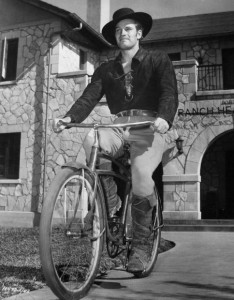
Let’s get Charlton Heston tough on bad drivers, pull ourselves up by our cowboy boot straps and skip the car for short trips!
I am rambling a bit here, but this case in which a repeat violator kills an innocent man opens up a floodgate of problems in our society in the United States. I’m not opposed to suburban living or soccer practice, but those luxuries have come with a big price tag because people have lost my grandfather’s conservative values. He wasn’t known for mincing words, so I can’t write what he would have said to my two neighbors, one who drives three blocks to work and the other five; neither would ever consider walking or bicycling. Turns out they are not alone, because statistics show 28 percent of all trips are less than one mile, and most are taken by car.
Our transportation funding system is broken, our kids have adult diabetes and we don’t know our neighbors who live a block away. With so many problems, it is tempting to throw up our hands and say “too bad, but what can we do?” It might not be the only answer, but I am a huge believer in the bicycle’s ability to solve lots of those problems. So let’s hop on our bikes, put the conserve back in conservative, and get to work on it.
This article was originally published by the Bicycle Federation of Wisconsin.
Bike Czar
-
Join a Bike Ride Under the Polish Moon
 Jun 1st, 2018 by Dave Schlabowske
Jun 1st, 2018 by Dave Schlabowske
-
9 Reasons to Join National Bike Challenge
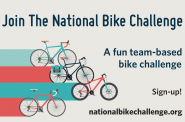 May 4th, 2018 by Dave Schlabowske
May 4th, 2018 by Dave Schlabowske
-
Biking Through the Mindoro Cut
 Apr 27th, 2018 by Dave Schlabowske
Apr 27th, 2018 by Dave Schlabowske


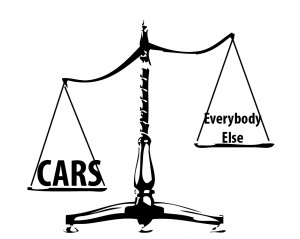
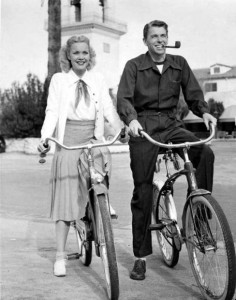




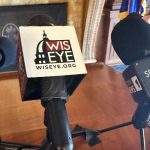













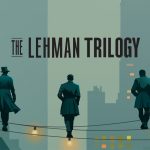

This notion that people need to drive without a license in order to work or get groceries is complete bogus. Our state has an occupational license program that almost everyone is eligible for (the only people not eligible are people who shouldn’t be driving anyway).
Not getting an occupational license when you need it is a sign of the mentality of the people who choose to drive without a license. That is a clear sign that they are at higher risk for being a dangerous driver, more likely to damage property, and worst of all more likely to hurt or kill others. Not to mention it’s almost a guarantee they do not have insurance, so when they do damage property or hurt others, the victim will end up footing the bill. We need stiffer penalties for people who choose to do this.
This column raises a good point but provides no background, no substance. Why was someone with 13 offenses still driving? Why are our laws so lax? Why are our courts so lax? Is it corruption, incompetence, influence peddling (and if so, by who – beer lobby, tavern owners?) or a combination? I don’t really care about Ronald Reagan, Charlton Heston, your grandfather or your neighbors. I want to know who is responsible, who is culpable and what can we do to prevent this tragedy from happening again.
I think Bob Berlan may miss the point. Dave is doing nothing more then stating the obvious – that the
ability to drive a car after losing one’s license is not really new or news (that is sad). It is this culture we find ourselves in.
I like Ronald Reagan, Charlton Heston and Dave’s relatives. I like being remined of “the way things used to be”. I do hold out for a better future but I don’t want to ignore the past. My simple mind says that we as individuals need to make small fixes in our society and not try to solve all our problems at once
Why are our traffic laws so lax? Who is responsible? Ostensibly the answer is the majority of the people of Wisconsin since this is a democracy and we have not told our elected officials we want them to change the laws. While pro-alcohol lobby groups certainly have influence, so do insurance companies. I don’t think we can put all the blame on our state brewing history or the tavern league, but certainly those are powerful lobby groups.
I still think it has more to do with how for decades the majority of the people in Wisconsin (and other states) have been electing legislators to build bigger highways and cut funding for transit, bicycling and walking. The emphasis on highways over other modes has increased under the current political leadership, but our state transportation system has been tilting out of balance under previous Democratic and Republican leadership. The same thing is true at the local level. Madison is the only municipality in the state with a capital budget for cycling, and it shows; Madison is the best city for bicycling in the state by far.
I brought up my grandfather’s generation because that was when the decline began and to point out investments in bicycling and walking are actually more conservative than liberal. The rise of the automobile, cuts to transit, and increases in suburban sprawl have made it unimaginable for most people to get around any other way than the automobile. Our lax laws are a reflection of those values.
Another big reason stiffer penalties for any type of driving offense is the fiscal impact. Every proposed change in any state law is analyzed for it’s fiscal impact. Since about 2009, Rep. Ott has been pushing a law to penalizing third- and fourth-offense drunken drivers the way five-time offenders are now punished. The state Department of Administration projected changing third and fourth offenses to felonies would drive up prosecutors’ costs by $1.1 million annually. The state Department of Corrections projected the change would generate an additional $158.2 million to $226 million in operating costs annually. The agency also said it would have to construct 17 new alcohol treatment facilities at a price of $236.4 million. You can read more about that here: http://www.jsonline.com/news/wisconsin/ott-darling-to-try-again-on-toughening-drunken-driving-laws-2587bvh-185303472.html
Another example is the Bike Fed’s proposed Vulnerable User Law (sb307). Even though the fiscal impact is “indeterminate,” we are being asked to remove some of the bill’s requirements for better education because of potential cost implications. Read those here: http://docs.legis.wisconsin.gov/2013/proposals/sb307
So, you can see there is plenty of blame to go around and it is not easy to point fingers.
While I generally resist telling people what to do, since you ask, I suggest you call or email you elected officials and tell them you support stiffer penalties for drunk and inattentive driving in spite of the potential increased costs to the state and increases spending on transit, walking and bicycling. You can propose those costs be offset by significant reductions in spending on highway expansion given people have been driving less every year since before the big recession.
If you want a specific, ask you state senator and representatives to support the VU law. You can find out more about that law and who is on the committees here: http://wisconsinbikefed.org/2013/12/12/a-life-is-worth-more-than-a-traffic-ticket/
Thanks Jerry. I agree with the idea of trying to make small fixes. I’d never suggest people get rid of their car or even move, but thinking about it helps. Start by eliminating those really short car trips of less than one mile. Heck, I was at the Sentry story on State in Wauwatosa yesterday and saw a middle-aged couple load their car with two bags of groceries, then drive two isles over to be closer to the Walgreens so they could go buy something there. Not only could they have walked the extra few hundred feet, but the fact that there were open parking spaces shows we over-subsidize free parking.
The response from Dave Schlabowske to my and other comments explains well the weaknesses in our system, our attitudes, our actions ( or lack of) and our laws that have allowed individuals to remain driving no matter how impaired they are and how often they’ve been cited. More important, thank you Dave for providing me with suggestions and directions to the entities and individuals who I should contact to press for improved laws and attention to these issues. I will definitely follow up and I hope others do as well. Thank you for the response.